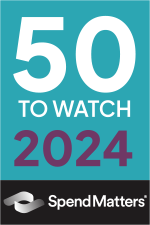Streamline Compliance With Intelligent Supplier Evaluations

FRDM assists in complying with a wide range of regulations, including:
German Supply Chain Due Diligence Act (LkSG)
Corporate Sustainability Due Diligence Directive (CSDDD)
Uyghur Forced Labor Prevention Act (UFLPA)
UK Modern Slavery Act
Australia Modern Slavery Act
Canada Bill S-211
French Duty of Vigilance Law
California Supply Chain Transparency Act
Scope 3 Emissions
Conflict Minerals
Compliance Tasks FRDM Does For You
Supply Chain Mapping
FRDM uses your spend data to map your entire supply chain, including sub-tier suppliers. This comprehensive visibility helps identify potential risks and areas requiring due diligence.
Risk Assessment and Monitoring
The platform assesses risks such as forced labor, environmental violations, and governance issues. FRDM continuously monitors these risks, providing real-time alerts and insights.
Regulatory Reporting
FRDM simplifies the creation of compliance reports required by various regulations. It offers customizable reports that can be tailored to specific legislative requirements, ensuring accurate and timely submissions.
Supplier Engagement
The platform facilitates collaboration with suppliers by providing them with analytics and corrective action tools. This empowers suppliers to address risks proactively and align with your company’s compliance goals.
Data Integration and Enrichment
FRDM integrates with your existing systems, enriching supplier data for more accurate risk assessments and reporting. This seamless integration ensures that your compliance efforts are based on comprehensive and up-to-date information.


Why Use FRDM?
Efficiency: Automates data collection and reporting, reducing manual efforts.
Accuracy: Provides precise risk assessments and compliance reports.
Transparency: Enhances visibility into your supply chain, promoting ethical practices.
Proactivity: Enables early identification and mitigation of potential compliance issues.











